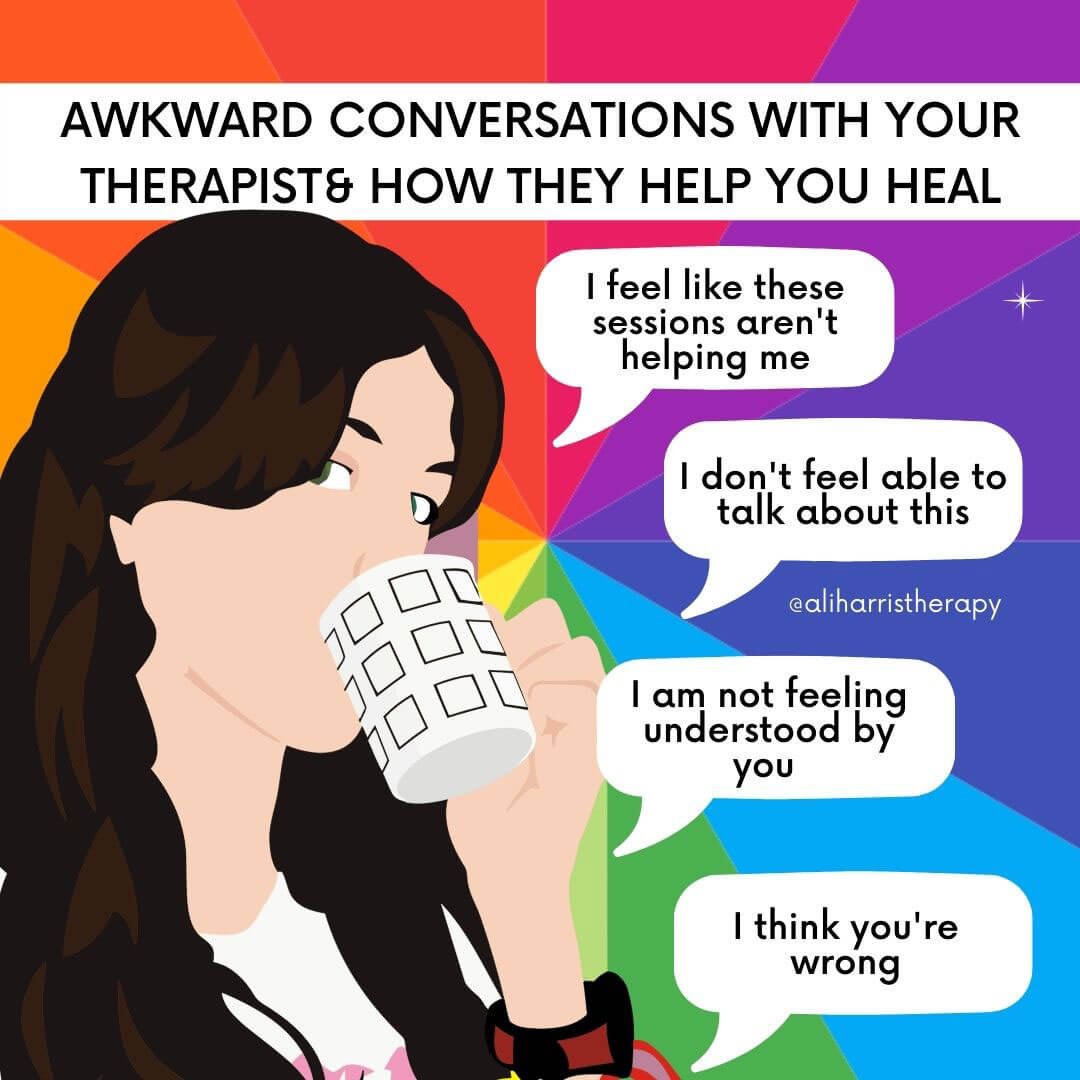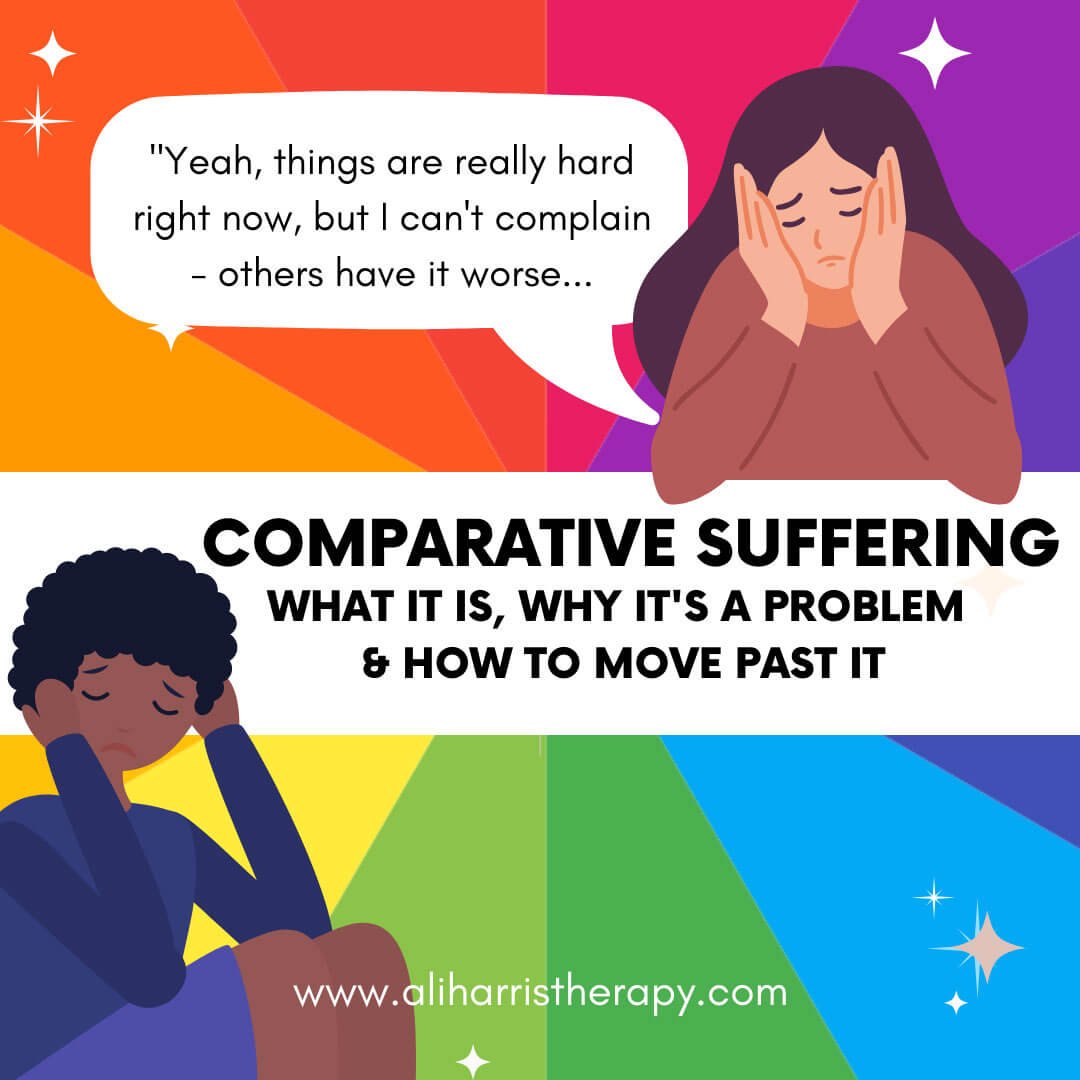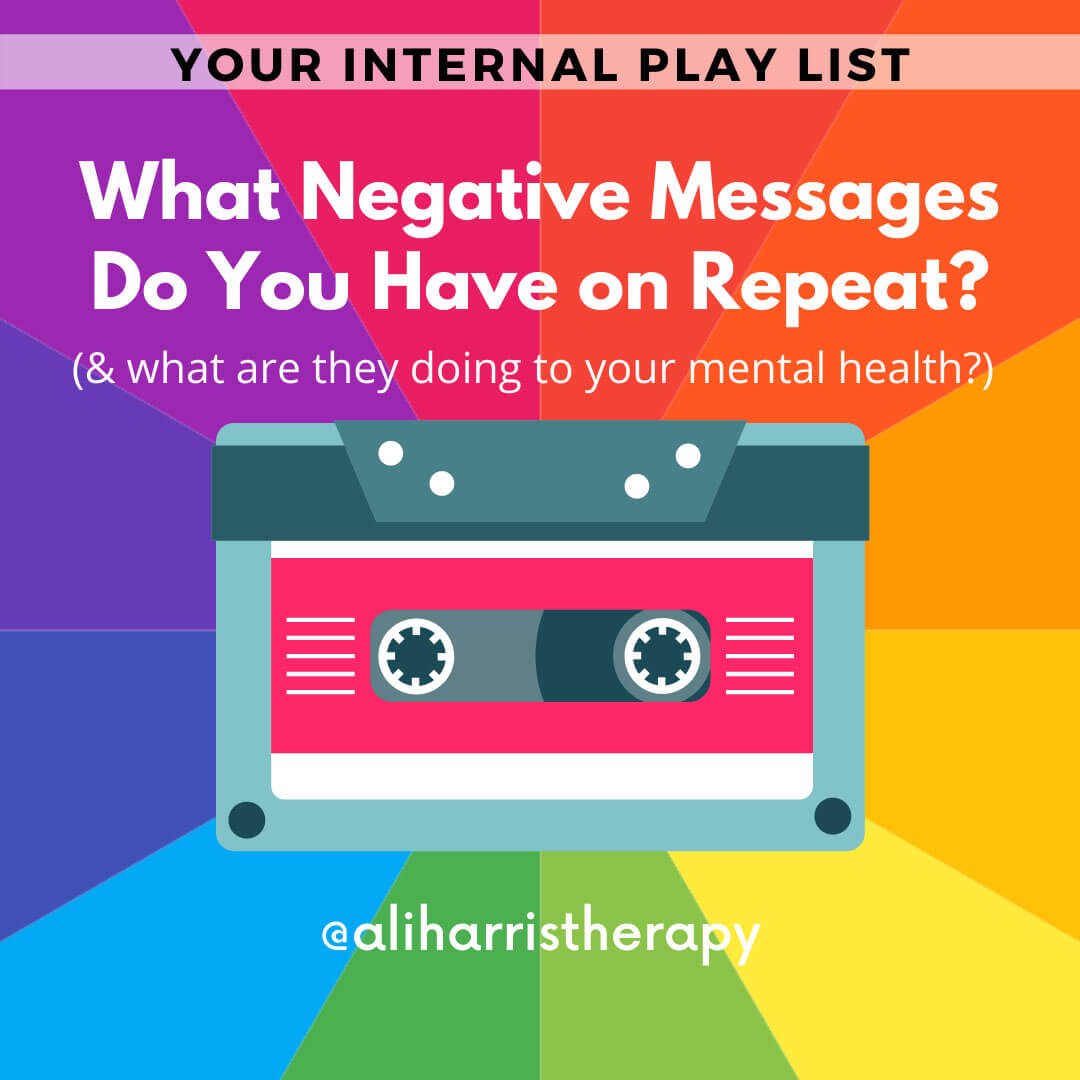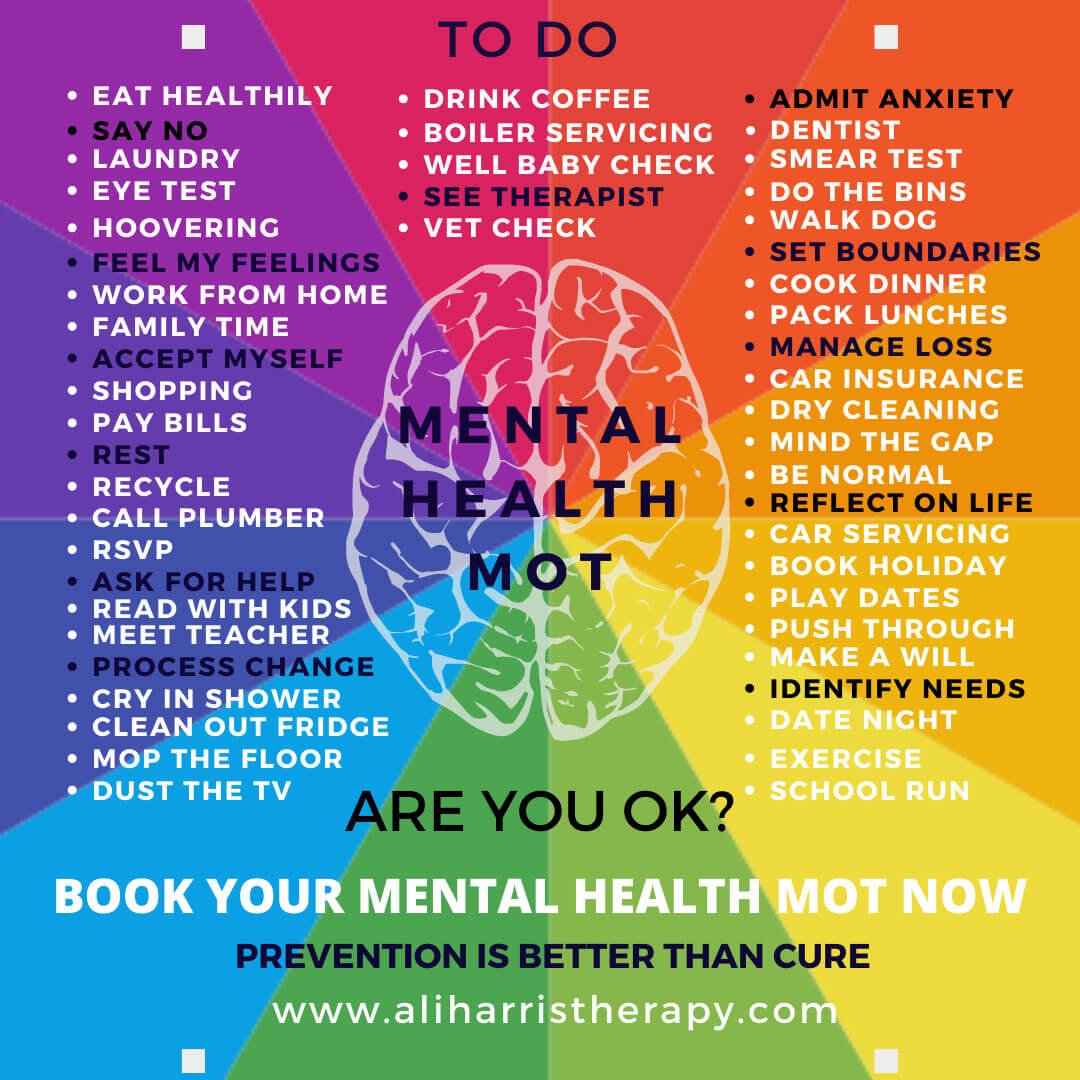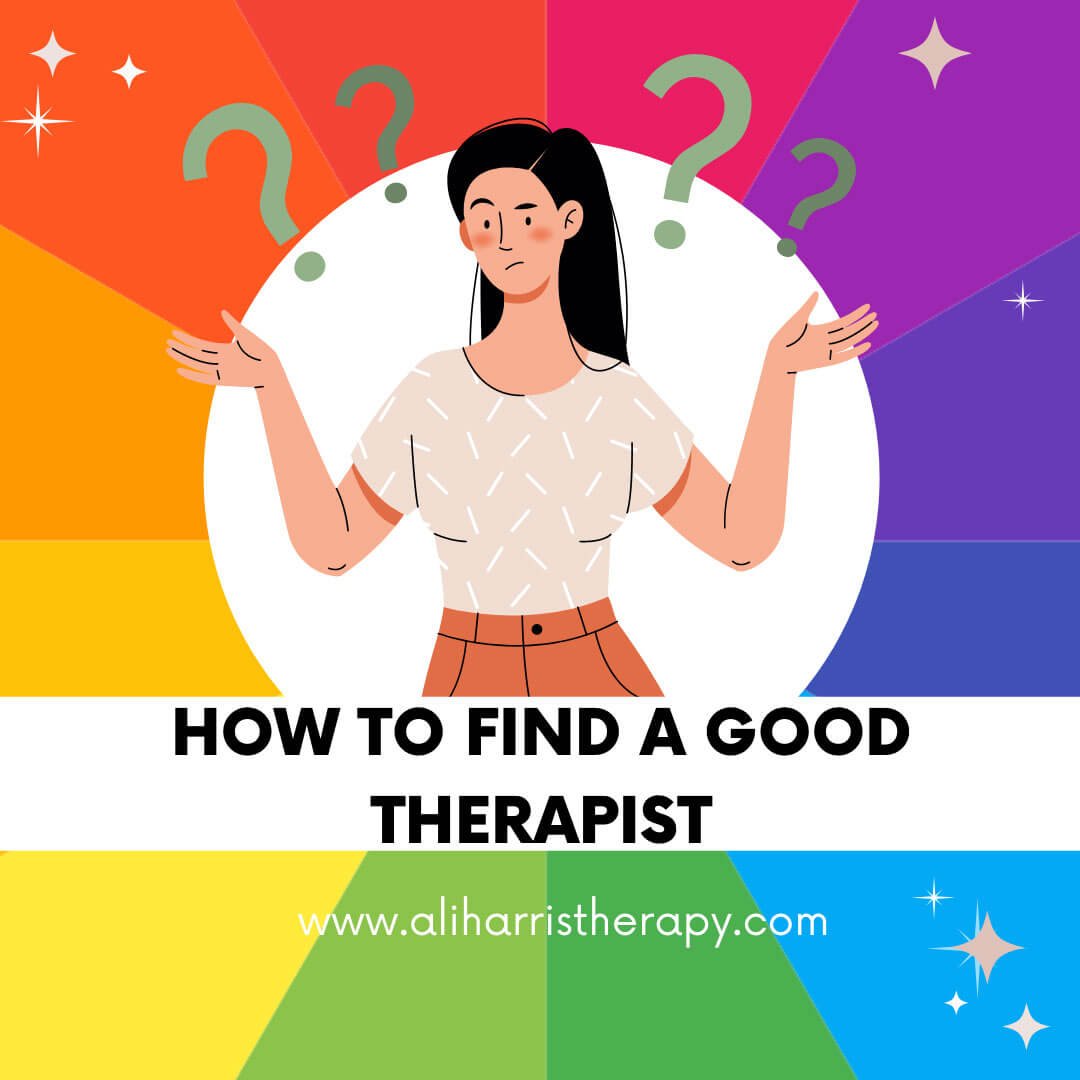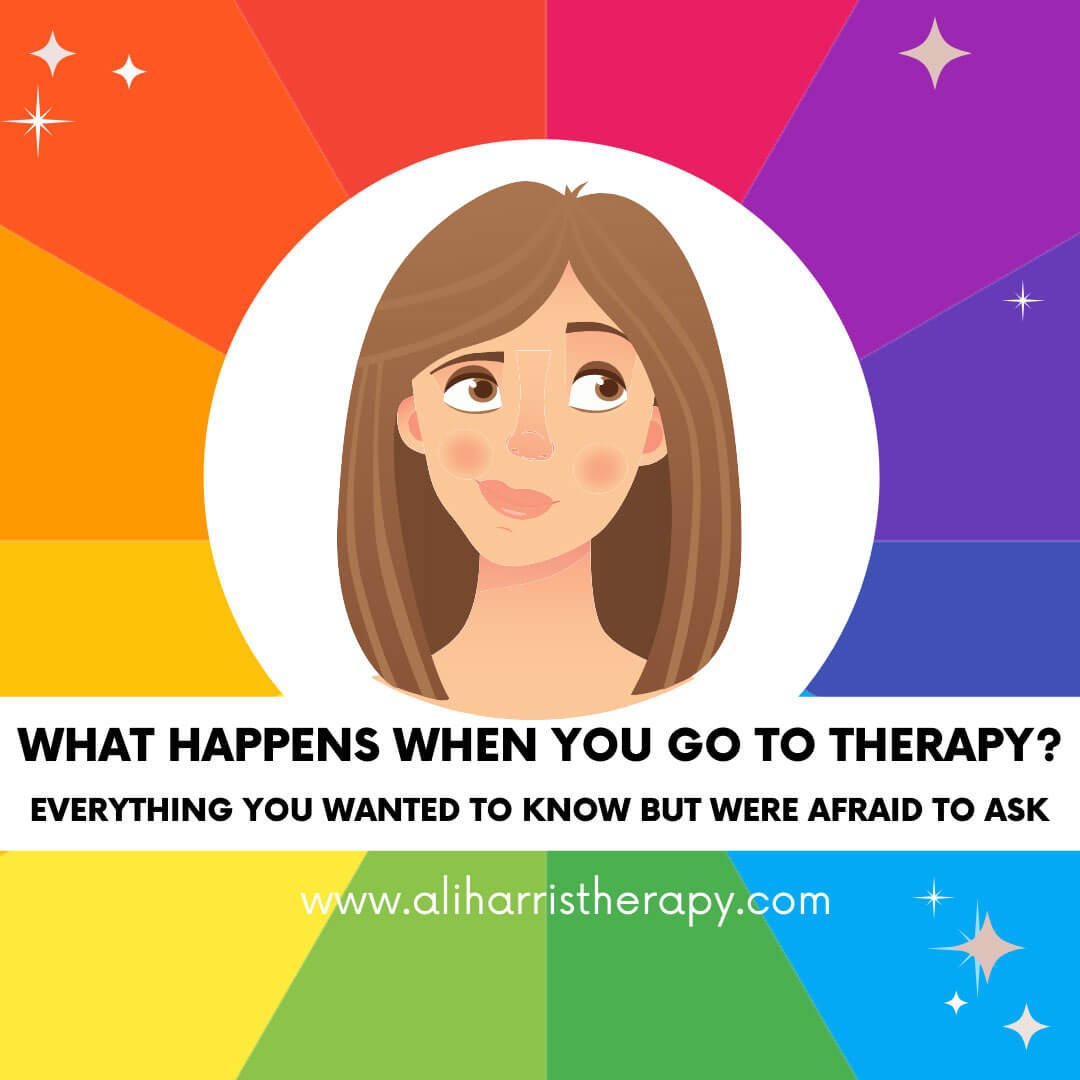"I Don't Feel Like You're Helping Me" Awkward Conversations With Your Therapist, & How They Help You Heal
Most of us who go to therapy expect to find things awkward from time to time.
After all, we go there prepared to talk about painful feelings, challenging relationships, and traumatic events.
It's not exactly comfortable, huh?
BUT what we don't tend to anticipate is the times when we feel that it is our therapist who is the problem.
So, if you are in therapy and find yourself feeling misunderstood, not listened to, or judged by your therapist, it can feel awkward to talk to them about it.
That's why I want to let you know that not only is it ok to have these awkward conversations with your therapist, it's really important that you give it a go, if you can.
Why?
Because these awkward conversations can help you improve your relationship with yourself and others.
Awkward conversations with your therapist can ultimately help you build a happier, more satisfying life!
That sounds ok, doesn't it?
But my therapist is LOVELY and would NEVER upset me!
Not on purpose, no - at least I should hope not!
Hopefully, when you chose your therapist, you picked someone who you 'clicked' with.
Your therapist probably gave you good vibes about the way they work.
I'm guessing that when you decided to start seeing them, you felt you had selected a person that you could really talk to.
Unsurprisingly then, having found a therapist you liked and felt you could learn to trust, you were probably not thinking about any problems that might arise in that relationship.
It is unlikely to have occurred to you that your therapist might occasionally do or say something that will annoy you, hurt your feelings, leave you feeling judged or wondering if they find you a bit boring.
If it hasn't happened to you, then I want you to know that it probably will at some point, and that this is not necessarily a bad thing.
If it has happened to you, then you know that it feels awful.
You might contemplate your next steps and feel unsure how to proceed.
You might be tempted to avoid the awkwardness associated with simply telling them how you feel.
Things I have done when I felt upset with my therapist but didn't want to have an awkward conversation about it
Told them I'm 'all better now' and abruptly ended therapy.
Pretended that I wasn't hurt/angry/upset at all.
Not gone to a session and failed to tell them I wasn't coming.
'Forgotten' to pay them.
Convinced myself that I am 'over-reacting'
Decided I'm 'beyond help' and therapy 'isn't for me' and that I'm doomed to be unhappy forever.
Hang on, Aren't Therapists Supposed To Help You, NOT Hurt Your Feelings?!
Yes, theoretically, therapists are supposed to help you - they are NOT supposed to purposefully create additional emotional issues.
But when you go to a therapist, you are entering into a relationship between two humans, and that means that, like any relationship, there is potential for misunderstanding and for harm.
This can make for some super-awkward or even very painful conversations.
Luckily, it can also create AMAZING opportunities for self-discovery and emotional healing.
So, that's why if or when your therapist does or says something that you find difficult, I want to encourage you to TELL THEM SO!
Look, I'll even give you some ideas on what you might say...
Awkward Things I Have Said to My Therapist:
"Er...I feel like you're judging me when you..."
"Last week I felt hurt by what you said when I..."
"Sometimes I feel like you're bored of my problems..."
"You just sit there in silence - these days I find you cold as a witch's tit!"
"I think I may need to see a different therapist."
Totally toe-curlingly awkward, huh?
It's super-tempting to avoid the situation, whether you skip one session, convince yourself you don't need to go to therapy or just try to pretend it didn't happen and carry on as normal.
But if you go for avoidance, while I don't judge you for it, I have to tell you that you are missing out on a golden opportunity.
Ali, telling someone that they suck at their job does NOT sound like a golden opportunity!
I know.
But it is a golden opportunity.
If you are my client and you tell me you feel like I'm not helping you, or I've hurt your feelings, or you feel judged by me, then I will take it seriously.
I won't get defensive, I will get accepting, and really curious about how this has happened.
I want to know that stuff.
I want to hear it.
I want to explore it.
I want to understand how you're feeling and let you know that even if I'm the problem - hell, ESPECIALLY if you feel I'm the problem, how you feel matters to me.
You and your feelings are important.
I want to help you make sense of ALL your difficult feelings, and that stays the same even if they're about me.
What if I tell my therapist and they get angry, say it's my fault or kick me out?!
No therapist worth their salt will do this.
But I have to be honest - some therapists might do this.
Some therapists are not willing or able to be open to discussing your negative feelings about them.
This is not ok.
If your therapist doesn't seem willing or able to have this kind of awkward conversation, then it might be time for you to move on.
And before you do, feel free to lodge an official complaint with the counselling body with which they are affiliated, in my case, that's the BACP.
What should my therapist do if I am upset with them?
They should take it seriously and open up the conversation, not shut it down.
If you come to me, as my client, and tell me that you have felt hurt, worried, offended, or disrespected by me, then I will take it seriously.
I will believe you; I will listen to you; I will be accountable to you, and empathise with your situation.
After all, if you have come to me for help and have felt hurt by me, then that is awful for you, and it should not be ignored.
I won't justify myself, make excuses, gaslight you, get angry with you or retaliate in any way.
What's In It For Me If I Put Myself Through These Awkward Conversations?
As I have said, these awkward conversations with your therapist are opportunities for self-discovery and healing.
For example, often when you tell someone they have hurt or upset you, you might be used to being met with a lot of defensive bullsh*t:
"Oh, why would you think I would be mean to you, is that what you think of me?!"
"You're over-reacting!"
"You're so dramatic!"
"That's not what I meant, you're twisting my words!"
When you therapist doesn't do that, (and as previously mentioned, they really shouldn't do that,) it can be quite a healing experience to simply be heard.
I'm hoping your therapist's reactions might be along these lines:
"It sounds like it was hard for you to feel that I was dismissing your feelings like that."
"It must have been painful to feel that I was bored by what you were saying."
"How awful for you to come to me to feel understood and yet feel like I just don't get it!"
Having someone who let's you talk about your negative experience of them as much as you need to can really help.
When someone just sits with you, listens and simply allows you to be heard, it can make it feel easier for you to express difficult feelings without censoring yourself due to fear of others' reactions.
Ok, what else can I get out of awkward conversations with my therapist?
Awkward conversations in therapy can offer you new ways to explore how you relate to yourself and to others.
They can help you to experiment with how you express your feelings and needs to others.
They can be a way to find out - can you be matter of fact, even blunt?
Or do you prefer to find clear but diplomatic ways to say how you feel?
Awkward conversations with your therapist can also help you track what can happen when you decide NOT to express your feelings.
Sometimes a person clearly isn't happy about something I have done or said but needs a little coaxing to actually say so.
Once they do, we can think together about times they have kept quiet to avoid an awkward conversations.
We can reflect on what the resultant silence has meant to them, and on what it has done to them, emotionally.
It can be hard to have an awkward conversation but it's also difficult to keep how you feel inside.
Awkward conversations with your therapist are often not easy BUT they really do provide a goldmine of information about how you operate and how you experience others.
Would you like to have a (hopefully) much less awkward initial conversation with me?
If you're interested in having some therapy, and would like to know more about what it involves, how it helps, how I work and why I work that way, or anything else you might want to know, then let's chat!
I offer everyone a free initial 60 minute chat.
I do this so that you can tell me a bit about what's going on for you and find out whatever you need to know, so that you can determine if I'm someone you could really talk to.
If that sounds like a plan to you, you can book your chat here.
But whatever you do next, please remember that it's ok to have awkward conversations with your therapist.
Self-Love Quiz
Self-love is the foundation of mental health, which is why I created the self-love quiz – to help you measure you self-love level & help you learn how to improve your mental health, so that you can create a happier, more satisfying life!

